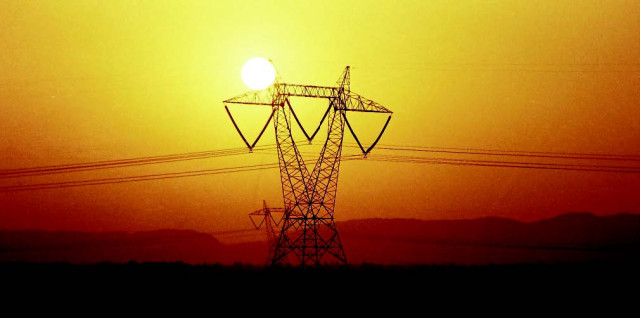Clean energy: With biogas power plants, demand for fossil fuel to come down
Plants will supply cheap electricity to poultry farms, dairy farms and domestic consumers.

The new plants are capable of producing electricity both for domestic and commercial consumption. PHOTO: FILE
This is an extension of the Rural Support Programme Network (RSPN)’s initiative under which it has already provided biogas plants that produce gas to meet the needs of consumers in rural areas where piped gas is not available.
The new plants are capable of producing electricity both for domestic and commercial consumption.
“If the technology spreads from region to region, the electricity generated from biogas could minimise the pressure on the national power grid,” said Rana Amir, Area Manager of RSPN, while talking to The Express Tribune.

RSPN is working in collaboration with the Netherlands, which is providing technical assistance without any fee, and is giving a subsidy of Rs40,000 per plant.
The two sides have already financed projects aimed at running tube wells and small-sized poultry farms on gas produced by the biogas plants.
“The new project will bring cheaper electricity for large poultry farms, control-shed farms, dairy farms and domestic consumers,” said Amir.
The cost of a 50-cubic-metre plant including all accessories and a special biogas engine imported from China is Rs475,000 and the 100-cubic-metre plant will cost Rs650,000.
The larger plant of 100 cubic metres will provide electricity without any disruption to control-shed and large poultry and dairy farms while the smaller 25 to 50-cubic-metre plants will cater to the needs of residential consumers depending on their demand.

Punjab is largely an agrarian economy with no dearth of livestock that provides the input for biogas plants. A majority of the people have their own farmhouses, who rear a large number of cows.
“To run a power plant, manure of 20 to 40 cows is enough to provide the fuel,” said Amir. “We are installing these plants in control-shed farms because they need uninterrupted supply of electricity and this will be the cheapest source of energy.”
Businessmen were the major buyers of biogas plants as they eager to reduce their cost of production, he said, adding these were a comprehensive product line of electrical generators to meet the consumers’ power needs.
According to Amir, the biogas plants will ease the threat of environmental hazards caused by dairy and poultry waste. The plants will also run on expired dairy products and waste to generate electricity.
Addressing environmental problems and promoting alternative sources of energy are crucial for Pakistan at a time when it is experiencing acute energy shortages.
Published in The Express Tribune, November 30th, 2013.
Like Business on Facebook, follow @TribuneBiz on Twitter to stay informed and join in the conversation.



















COMMENTS
Comments are moderated and generally will be posted if they are on-topic and not abusive.
For more information, please see our Comments FAQ